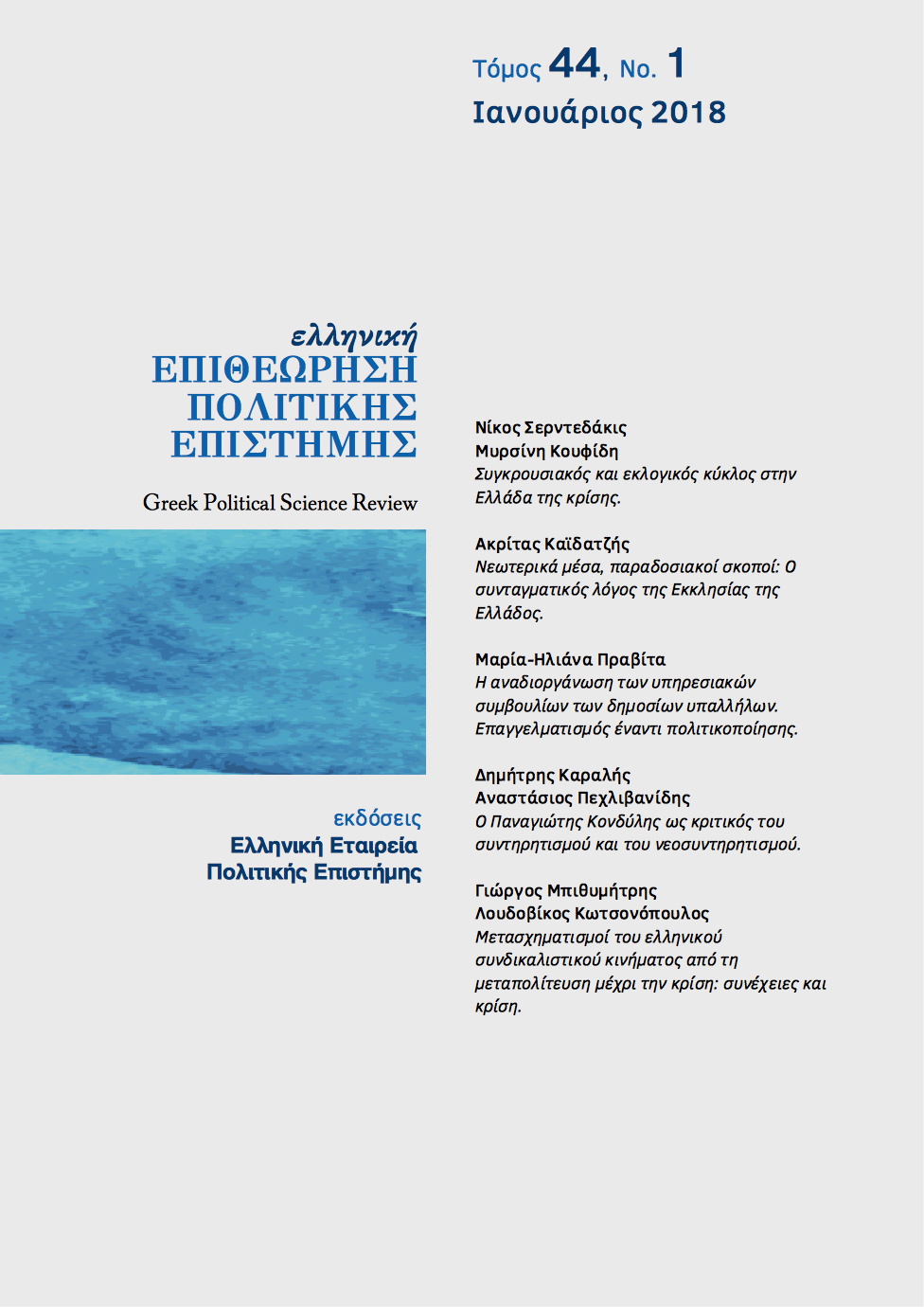Transformations of the Greek Post-dictatorship trade union movement: continuities and discontinuities

Abstract
With the present paper we suggest an alternative periodization of the post-dictatorship trade unionism, which is purported a) through a dynamic understanding of the structure of the interest representation, b) through an exploration of Greek unionism in three moments: the class moment of the first post-junta period; the social moment of the eighties; the european moment, which signals an upgrade of the stricto sensu economic functions in the expense of social-political ones. The labour radicalism of the early-crisis period suffering from a lack of consistent revitalization plans and experiencing a hostile environment fails to become hegemonic and this failure impacts negatively upon the trade union functions.
Article Details
- How to Cite
-
Μπιθυμήτρης (Giorgos Bithymitris) Γ., & Κωτσονόπουλος (Loudovikos Kotsonopoulos) Λ. (2018). Transformations of the Greek Post-dictatorship trade union movement: continuities and discontinuities. Greek Political Science Review, 44(1), 99–122. https://doi.org/10.12681/hpsa.15923
- Issue
- Vol. 44 No. 1 (2018)
- Section
- Articles

This work is licensed under a Creative Commons Attribution-NonCommercial-ShareAlike 4.0 International License.
Authors who publish with this journal agree to the following terms:
Authors retain copyright and grant the journal right of first publication with the work simultaneously licensed under a Creative Commons Attribution licence that allows others to share the work with an acknowledgement of the work's authorship and initial publication in this journal.
Authors are able to enter into separate, additional contractual arrangements for the non-exclusive distribution of the journal's published version of the work (e.g. post it to an institutional repository or publish it in a book), with an acknowledgement of its initial publication in this journal.
Authors are permitted and encouraged to post their work online (preferably in institutional repositories or on their website) prior to and during the submission process, as it can lead to productive exchanges, as well as earlier and greater citation of published work (See The Effect of Open Access).


